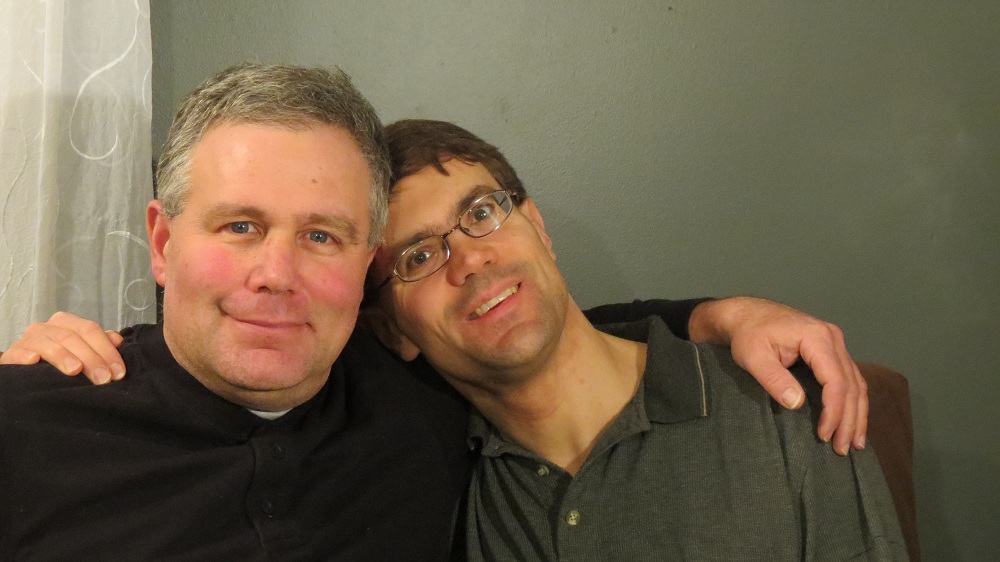
I watched season two of the charming Netflix series Heartstopper. I liked it despite it being aimed at a much younger audience. What drew me to the series was the gay storyline; the romance between the two protagonists, the high school boys Nick and Charlie. The series is a drama, although it pulls its punches. The boys never go past kissing and cuddling in their relationship. Also, Nick is bisexual, and Charlie is gay. It is cute and appealing to its teenage audience. I like that a teenage gay romance is portrayed as a positive thing. Coincidentally, the actors who play Nick and Charlie are, like the characters they play, gay and bisexual. Kit Connor, who plays Nick, declared his bisexuality. Joe Locke, who plays Charlie, is openly gay. That the young actors are gay and bisexual is interesting. It is nice that they are free to be themselves.
Kit Connor and Joe Locke are English actors who happen to be gay and bisexual. Many English actors who came before them were gay and bisexual. John Gielgud, Harry Andrews, Michael Redgrave, Laurence Olivier, and Denholm Elliott were among them. The difference is these men lived and worked as actors in Britain when the Labouchere Amendment criminalized male homosexuality. From 1885 to 1967 (until its repeal), the Criminal Law Amendment Act 1885 (48 & 49 Vict. c.69) was in effect. Section 11 of the Act, in particular, a clause known as the Labouchere Amendment applied to male homosexuality. In short, the clause provided for a term of imprisonment “not exceeding two years,” with or without hard labour, for any man found guilty of gross indecency with another male, whether “in public or in private.”
Despite this proscription in law against male homosexuality, the law was enforced sparingly and selectively; however, the consequences of arrest and conviction could be devastating. John Gielgud very nearly saw his career as an actor come to an abrupt end in 1953 when a scandal arose over his arrest for ‘persistently importuning male persons for immoral purposes’ (caught trying to pick up a man in a public washroom). He was fined £10, and news of the arrest found its way to the press, causing him a most personal humiliation and refusal of a visa to travel to the United States with his company to perform Shakespeare’s The Tempest. The theatre-going public saw fit to forgive his momentary indiscretion, and he continued his acting career both in the United Kingdom and the United States.
Happily, attitudes toward male homosexuality in England and Wales changed, and the Labouchere Amendment was repealed in 1967 with the passage of the Sexual Offences Act. Interestingly, Margaret Thatcher, a Conservative Party Member of Parliament from the backbenches, broke with the Conservative Party ranks and voted in favour of the passage of the Sexual Offences Act. While that was a positive development for gay rights, life still was difficult for gay men in Britain. I heard the song (Sing If You’re) Glad to Be Gay by the Tom Robinson Band (1978) at university in the early 1980s. The lyrics include in part:
The British Police are the best in the world
I don’t believe one of these stories I’ve heard
‘Bout them raiding our pubs for no reason at all
Lining the customers up by the wall
Picking out people and knocking them down
Resisting arrest as they’re kicked on the ground
Searching their houses and calling them queer
I don’t believe that sort of thing happens here
No, prejudice against gay men lingered in Britain long after the repeal of the Labouchere Amendment.
The gay rights movement succeeded in realizing its goal of removing the stigma of being a gay man. For this, I am ever grateful. I am mindful of the past–not to dwell on and wallow in emotion–but to remember it is crucial to be vigilant in the present. It was a challenging and uphill effort for gay men to win their rights to participate fully and openly in Western society. That Kit Connor and Joe Locke, young gay and bisexual Englishmen who live openly as gay and bisexual when those who came before them could not, found success and happiness as actors in 2023 is something to celebrate. Still, I only hope people will appreciate them for their talent as actors rather than their sexual orientation because, honestly, what difference does it make?
Posted by Geoffrey
